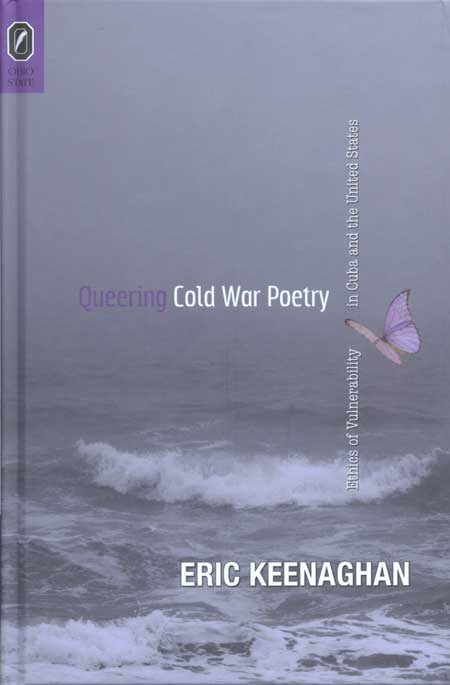Queering Cold War PoetryEthics of Vulnerability in Cuba and the United StatesEric Keenaghan |
 Dec 2008 Literary Criticism/Poetry; Literary Criticism/Gay & Lesbian 196 pp. 6x9  $54.95 cloth 978-0-8142-0330-9 Add cloth to shopping cart $14.95 CD 978-0-8142-9177-1 Add CD to shopping cart Shopping Cart Instructions Review/Change Shopping Cart & Check-out | |||
|
read excerpts from
the book • leave / read comments and critiques of the book • Explore More |
“Keenaghan’s Queering Cold War Poetry not only offers an important critique of the liberal political stakes of queer theory, but delineates how poetry offers vital and meaningful theoretical models for reconceptualizing the individual’s relation to others through alternative forms of community.” —E. L. McCallum, associate professor of English, Michigan State University “Eric Keenaghan’s study ranges across an impressive array of materials, from detailed discussions of modernist textuality to broader theoretical and philosophical engagements by figures such as Mouffe, Badiou, Deleuze, and Guattari and especially Judith Butler. His exploration of new and diverse poetic ‘couplings’ that cut across lines of race and nation challenges the marriage of liberalism and nationalism bodied forth in entrenched, taken-for-granted modes of poetic subjectivity and interiority. In doing so, this book fundamentally changes our understanding of poetic modernism and its relationship to questions of ethics and politics.” —Cary Wolfe, Bruce and Elizabeth Dunlevie Professor of English, Rice University Many feel that individualism, and the security it demands, define democracy and freedom. This belief is characteristic of the attitude that thinkers from John Dewey to Michel Foucault have criticized as “liberalist.” In actuality, we share intimate associations with one another through contacts established by our bodies and even by language. In Queering Cold War Poetry, Eric Keenaghan offers queer theory, queer studies, and literary theory a new political and conceptual language for reevaluating past and present high valuations of individualism and security. He examines four Cold War poets from Cuba and the United States—Wallace Stevens, José Lezama Lima, Robert Duncan, and Severo Sarduy. These writers, who lived in an era when homosexuals were regarded as outsiders or even security threats, offer critiques of nationalism and liberalism. In their struggles against state and cultural mandates that foreclosed positive estimations of vulnerability, Stevens, Lezama, Duncan, and Sarduy radically revised ethics and identity in their day. Their work exemplifies how much modernist poetry disseminates experiences of differences that challenge prevailing attitudes about individuals’ relationships to one another and to their nations. Through studies of Cuban and U.S. lyric and poetics, Queering Cold War Poetry clears the way for imagining what it means to belong to a passionate and compassionate citizenry which celebrates vulnerability, searches for difference in itself and each of its constituent individuals, and identifies less with a nation than with a global community.
| |||

